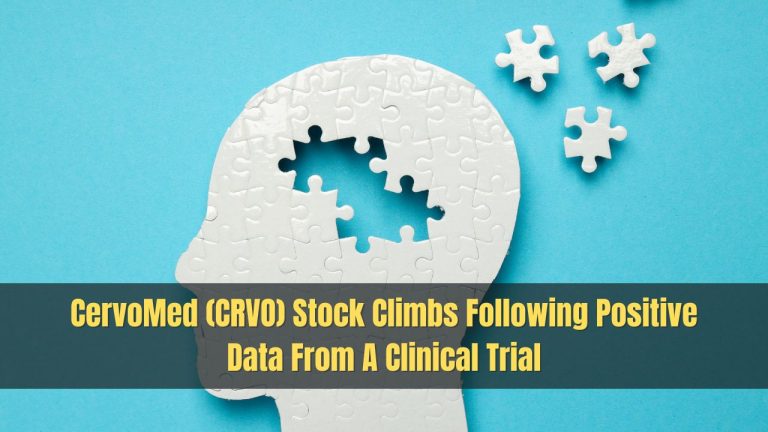Shares of CervoMed Inc. (NASDAQ: CRVO) advanced notably following the release of new clinical results. As of the latest check, CRVO stock was trading at $10.33, marking a 15.03% increase.
The company reported positive 32-week data from the Extension phase of its Phase 2b RewinD-LB trial, indicating that oral neflamapimod continued to slow disease progression and influence a plasma marker of neurodegeneration in patients diagnosed with Dementia with Lewy Bodies (DLB).
Strong Results Presented at International Congress
The detailed findings were presented in two sessions during the Alzheimer’s Association International Congress 2025 (AAIC) on July 27. Data highlighted a 54% reduction in the risk of clinically significant worsening on the CDR-SB over 32 weeks of treatment.
This benefit increased to 64% when applying the more selective ptau181 threshold to identify DLB cases without Alzheimer’s Disease co-pathology. The results underscore neflamapimod’s potential impact on CDR-SB, a recognized benchmark for measuring clinical progression in dementia trials.
Path to Phase 3 Trial and Regulatory Discussions
Coupled with promising effects on a blood-based biomarker associated with neurodegeneration, these results strengthen the company’s confidence in progressing toward a Phase 3 trial. CervoMed plans to meet with the U.S. Food and Drug Administration in the fourth quarter of 2025 to finalize the Phase 3 study design. The company remains focused on advancing effective treatment options for the underserved DLB patient community.
Capsule Formulation and Clinical Insights
An important aspect of the RewinD-LB trial involved differences between capsule batches. An older batch of neflamapimod capsules, used during the double-blind and part of the Extension phase, resulted in plasma exposures below target levels. In contrast, a newer batch achieved target concentrations and demonstrated statistically significant clinical benefits.
Kaplan-Meier analyses revealed that patients receiving the New Capsules showed meaningfully slower disease progression compared to those taking the Old Capsules. This effect was even more pronounced among patients meeting the optimized ptau181 threshold for minimal Alzheimer’s co-pathology.
If confirmed in a Phase 3 pivotal trial, these outcomes could mark a significant advancement in addressing the treatment gap for DLB, the second most common dementia, which remains difficult to treat due to its dual impact on cognition and motor function.





